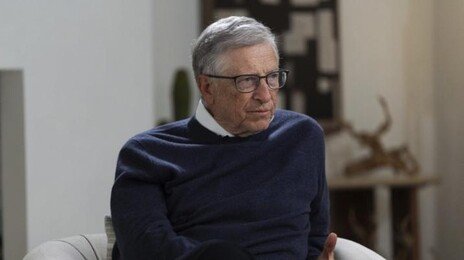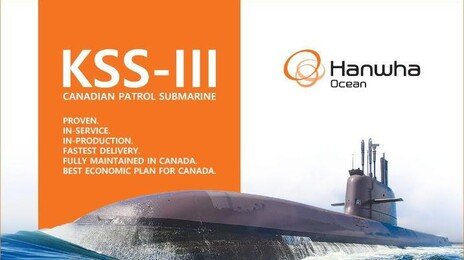공유하기
<워싱턴 포스트의 짐 호글랜드 칼럼 원문>
-
입력 2001년 1월 12일 17시 58분
글자크기 설정
President-elect Bush delights in the considerable people skills he has developed in middle age. Sizing up and influencing the personalities of his fellow world leaders will be his early focus in foreign policy as aides concentrate on details and substance.
In conversation and on the stump last year, Bush was quick to paint the world in black and white. He stressed the importance of helping out friends while identifying and deterring adversaries. He portrayed himself as a man quick to remember favors and slow to forget disrespect from others.
But gray is a dominant color on the international landscape he inherits. Bush's deep faith in his ability to judge character and translate it into policy was boldly asserted as he unveiled his Cabinet choices. That ability will be strongly tested in short order by questions such as these:
Is Russia's Vladimir Putin a man to trust or a man to suspect? How will Egypt's Hosni Mubarak respond to the rising tide of anti-Americanism in his region? Are Jiang Zemin's cloying pretense at friendship and offers of commercial advantage in China more attractive than fully supporting Taiwan's democratic leadership?
The dangers of overly personalizing diplomacy are obvious. The names Bill Clinton and Boris Yeltsin make the case. But personalities do matter in international politics. A clear reading of Putin, Mubarak or Jiang will serve Bush better at this stage than complex position papers about crises he may or may not face.
He will also learn that political personalities interact at the international level. At times a collective leadership style emerges in industrial democracies as politicians face common problems or threats and seek solace or ideas from each other.
In the late 1970s, Jimmy Carter, France's Valery Giscard d'Estaing and Germany's Helmut Schmidt reinforced each other's high-minded tendency to put the needs of international cooperation before domestic politics. Each was out of a job by 1982.
Ronald Reagan and Margaret Thatcher never made that mistake. They glorified national selfishness and prospered politically at home. Clinton also found his surest ally abroad in a British prime minister, Tony Blair. Together they propounded a Third Way political doctrine that justified amputating the left wings of the Democratic and Labor parties.
Blair's closeness to Clinton and British preparations for a national election probably rule out his bonding that tightly with Bush, even though the new U.S. leader has praised Britain as America's closest friend abroad and Blair will work hard to minimize any U.S.-U.K. drift.
The first foreign leader to meet Bush after the November election was in fact Jacques Chirac. The French president is a longtime friend of Bush's father, who lent a helping hand in scheduling the hastily arranged meeting in Washington last month. But Chirac's domestic troubles, a looming reelection fight and traditional U.S.-French rivalries limit his chances to ride shotgun with Bush.
A Thatcher-like ally for Bush is more likely to come from south of the border. The president-elect is personally interested in the problems and opportunities that Latin America presents for the United States.
He already knows Mexico's new president, Vicente Fox, an expansive and imaginative former business executive. They worked together as governors and each has told me they enjoyed the experience.
But turning that initial positive impulse into a strong policy relationship will depend a lot on how helpful Fox feels he can be with two of the blackest hats on Bush's screen: Cuba's Fidel Castro and Venezuela's Hugo Chavez. Bush holds deep suspicions of both, with reason.
The Mexican president should in any event be one of the first foreign leaders a newly inaugurated American leader meets. Such an early get-together this year would be more than symbolic. It could significantly affect the priorities and plans of Year One of the Bush administration.
Pushing his experts for a better understanding of Russia's Putin is another urgent early task for Bush. Clinton never seemed to penetrate the multiple personalities the former KGB agent advanced in dealing with other leaders, and he wound up misreading Putin's willingness to negotiate on missile defense.
Bush joins a global club of leaders stocked with talented policy formulators like Blair, criminal psychopaths like Iraq's Saddam Hussein and earthly saints like South Korea's Kim Dae Jung. America's weight in world affairs gives Bush the best shot of any leader to shape the temper of the times and the outlook of the leadership club. It is not an opportunity to ignore.
(Thursday, January 11, 2001)
트렌드뉴스
-
1
혹한 속 태어난 송아지 집에 들였더니…세살배기 아들과 낮잠
-
2
“합당 멈춰라” “당무개입 말라” 김민석-정청래 당권다툼 전초전
-
3
[김승련 칼럼]‘한동훈 배신자’ 논란, 뜨겁게 붙으라
-
4
정해인, 서양 남성 사이에서 곤혹…인종차별 의혹도
-
5
‘R석 7만9000원’ 한동훈 토크콘서트…한병도 “해괴한 정치”
-
6
홍석천 “부동산에 속아 2억에 넘긴 재개발 앞둔 집, 현재 30억”
-
7
인간은 구경만…AI끼리 주인 뒷담화 내뱉는 SNS ‘몰트북’ 등장
-
8
[사설]‘무리해서 집 살 필요 없다’는 믿음 커져야 투기 잡힌다
-
9
李, 또 ‘설탕부담금’…건보 재정 도움되지만 물가 자극 우려
-
10
‘역대급 실적’ 은행들, 성과급 최대 350%… 금요일 단축 근무
-
1
李 “유치원생처럼 못 알아들어”…부동산 비판한 국힘에 한밤 반박
-
2
“한동훈 쫓아낸 국힘, 스스로 사망선고” 韓지지자들 여의도 집회
-
3
한병도 “한동훈 토크콘서트는 ‘티켓 장사’”…韓 “1원도 안 가져가”
-
4
오세훈 “세운지구·태릉CC 이중잣대, 대통령이 정리해 달라”
-
5
경차 자리 ‘3칸’ 차지한 SUV…“내가 다 부끄러워”
-
6
李 “설탕부담금, 어려운 문제일수록 토론해야”
-
7
‘R석 7만9000원’ 한동훈 토크콘서트…한병도 “해괴한 정치”
-
8
李, 또 ‘설탕부담금’…건보 재정 도움되지만 물가 자극 우려
-
9
귀국한 김정관 “美측과 불필요한 오해는 해소됐다 생각해”
-
10
국힘 “李, 그렇게 쉬운 부동산 정상화 왜 아직도 못했나”
트렌드뉴스
-
1
혹한 속 태어난 송아지 집에 들였더니…세살배기 아들과 낮잠
-
2
“합당 멈춰라” “당무개입 말라” 김민석-정청래 당권다툼 전초전
-
3
[김승련 칼럼]‘한동훈 배신자’ 논란, 뜨겁게 붙으라
-
4
정해인, 서양 남성 사이에서 곤혹…인종차별 의혹도
-
5
‘R석 7만9000원’ 한동훈 토크콘서트…한병도 “해괴한 정치”
-
6
홍석천 “부동산에 속아 2억에 넘긴 재개발 앞둔 집, 현재 30억”
-
7
인간은 구경만…AI끼리 주인 뒷담화 내뱉는 SNS ‘몰트북’ 등장
-
8
[사설]‘무리해서 집 살 필요 없다’는 믿음 커져야 투기 잡힌다
-
9
李, 또 ‘설탕부담금’…건보 재정 도움되지만 물가 자극 우려
-
10
‘역대급 실적’ 은행들, 성과급 최대 350%… 금요일 단축 근무
-
1
李 “유치원생처럼 못 알아들어”…부동산 비판한 국힘에 한밤 반박
-
2
“한동훈 쫓아낸 국힘, 스스로 사망선고” 韓지지자들 여의도 집회
-
3
한병도 “한동훈 토크콘서트는 ‘티켓 장사’”…韓 “1원도 안 가져가”
-
4
오세훈 “세운지구·태릉CC 이중잣대, 대통령이 정리해 달라”
-
5
경차 자리 ‘3칸’ 차지한 SUV…“내가 다 부끄러워”
-
6
李 “설탕부담금, 어려운 문제일수록 토론해야”
-
7
‘R석 7만9000원’ 한동훈 토크콘서트…한병도 “해괴한 정치”
-
8
李, 또 ‘설탕부담금’…건보 재정 도움되지만 물가 자극 우려
-
9
귀국한 김정관 “美측과 불필요한 오해는 해소됐다 생각해”
-
10
국힘 “李, 그렇게 쉬운 부동산 정상화 왜 아직도 못했나”
-
- 좋아요
- 0개
-
- 슬퍼요
- 0개
-
- 화나요
- 0개

![[사설]경력-실적 미반영된 지나친 초임 격차, ‘로또 취업’ 부추긴다](https://dimg.donga.com/a/464/260/95/1/wps/NEWS/FEED/Donga_Home_News2/133276661.1.thumb.jpg)
